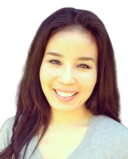
Imposter Syndrome
How I Beat Imposter Syndrome
Transforming anxiety and inadequacy into empowerment and belonging
Posted April 22, 2020
This guest post was written by James Serrano.
My name is James Zeus Ferrer Serrano. I am the son of Roseo and Antonette Ferrer Serrano, two Filipino immigrants who came to America in 1990 with only the clothes on their back, the tsinelas on their feet, and the promise of a mangandang kinabukasan for their children kept securely in their carry-ons.
My father comes from Batangas, a province in the Philippines where he was poised to take on the family business as his community's premier and most trusted tailor. However, after Mount Pinatubo's cataclysmic eruption in 1991, his dreams of growing the business through exportation extended far out of his reach. My mother is the eldest daughter of an eldest daughter, a warrior who lost hearing in both her ears as a child, but navigated through her adolescence via lip-reading and listening to her intuition. It was only in her 20s, during her first year in America, that she was able to first hear the world speak to her after being suited for her first hearing aid.
Like many of my first-generation peers, I come from a lineage of people who traversed a world we did not understand. A world not built for our ancestors—where trailblazing through uncharted territory meant survival, and complacency meant death. But despite all odds, my parents hustled obsessively and managed to support my sister and me through 12 years of private education and 4 years at top-tier universities.
The first time I experienced imposter syndrome, I was an 18-year-old kid attending my freshman orientation at UC Berkeley. A world-renowned professor stood at the front of a lecture hall of about 150 wide-eyed freshmen and said, "Many of you in this room were probably valedictorians at your high schools. Congratulations, but this is a place where you'll have to earn that title. Welcome to Cal." I don't remember what exactly I was thinking at that point, but I remember feeling small. Inadequate. Alone. Like I didn't deserve to be there.
It has been in moments like this—when I feel like I am not enough, or when I am afraid to speak up—that I look at the picture on my phone's lock screen.

Truthfully, I don't know if my parents ever felt imposter syndrome. If they did, they never let me see it. I only ever saw strength, hard work, and humility. But I can imagine there were times where they felt like an average kid in a lecture hall full of high achievers. I can imagine that I'm not the only one who has felt scared to raise their hand in class or visit a professor in office hours out of fear that they'd think I was dumb. That I'm not the only one who has held my tongue in a room full of people that looked nothing like me, anxiety convincing me I have nothing valuable to say.
What I do know, however, is that the magandang kinabukasan my parents were promised when they came to America was never supposed to be easy, and my story is no different. After 30 years at a factory job, thousands of dollars in tuition, and countless home-packed school lunches, I learned firsthand that feelings of inadequacy were not enough to hinder my family from achieving their goals. If I was going to be successful at Cal, I would have to persevere and adapt the same way my parents did. I could no longer allow imposter syndrome to be a sign of weakness for me. Instead, I now see it as an homage to my ancestors' journey. A token of my own courage to push the envelope and progress forward.
Whenever I look at that photo, I can feel my parents gazing into my eyes, reminding me of the humble beginnings I come from, the strength I was born with, and the endless potential I have yet to uncover. Like the red letters printed on my dad's favorite shirt, I am a hustler; and like the hearing aid hidden behind my mom's right ear, you're going to hear what I have to say.
No, I am not an "imposter"; I know that I belong.
**********
After graduating with a Bachelor of Arts in Psychology from UC Berkeley, James Serrano will start his career in consulting. He hopes to merge his passions in professional development and empowering minority voices by one day running his own Diversity and Inclusion Consultancy.

